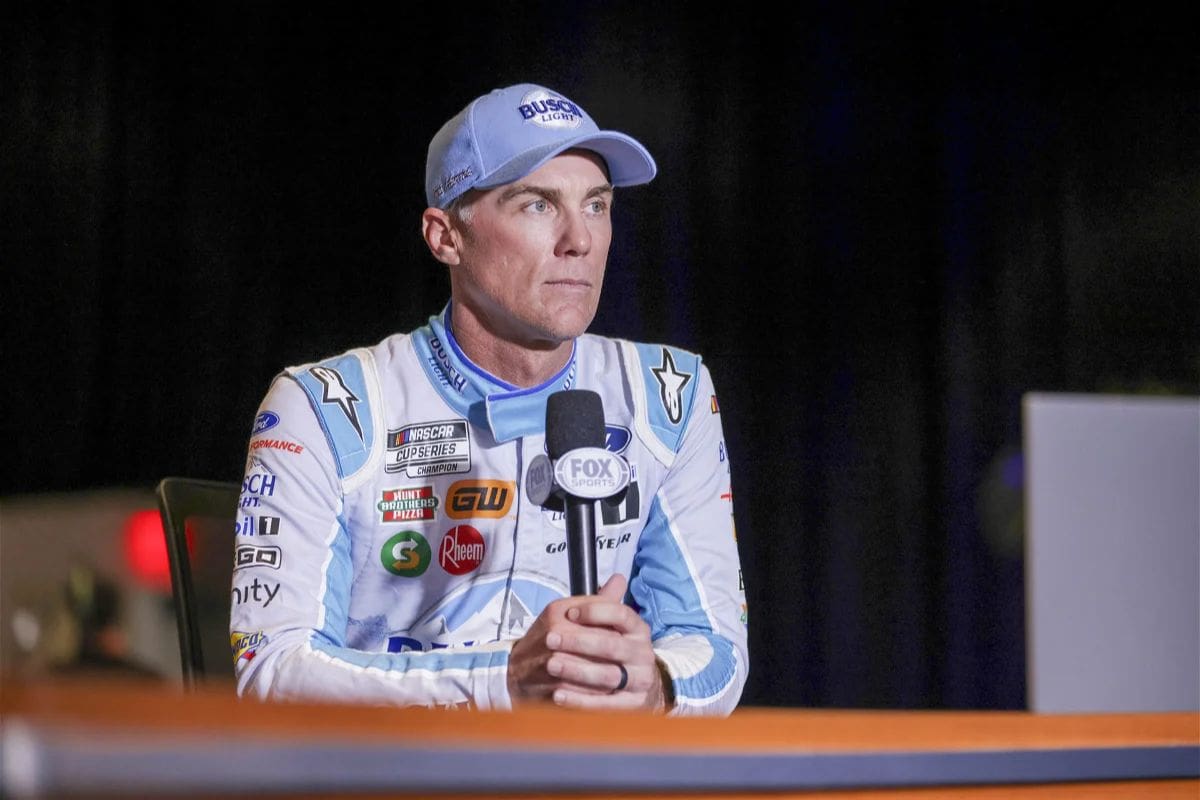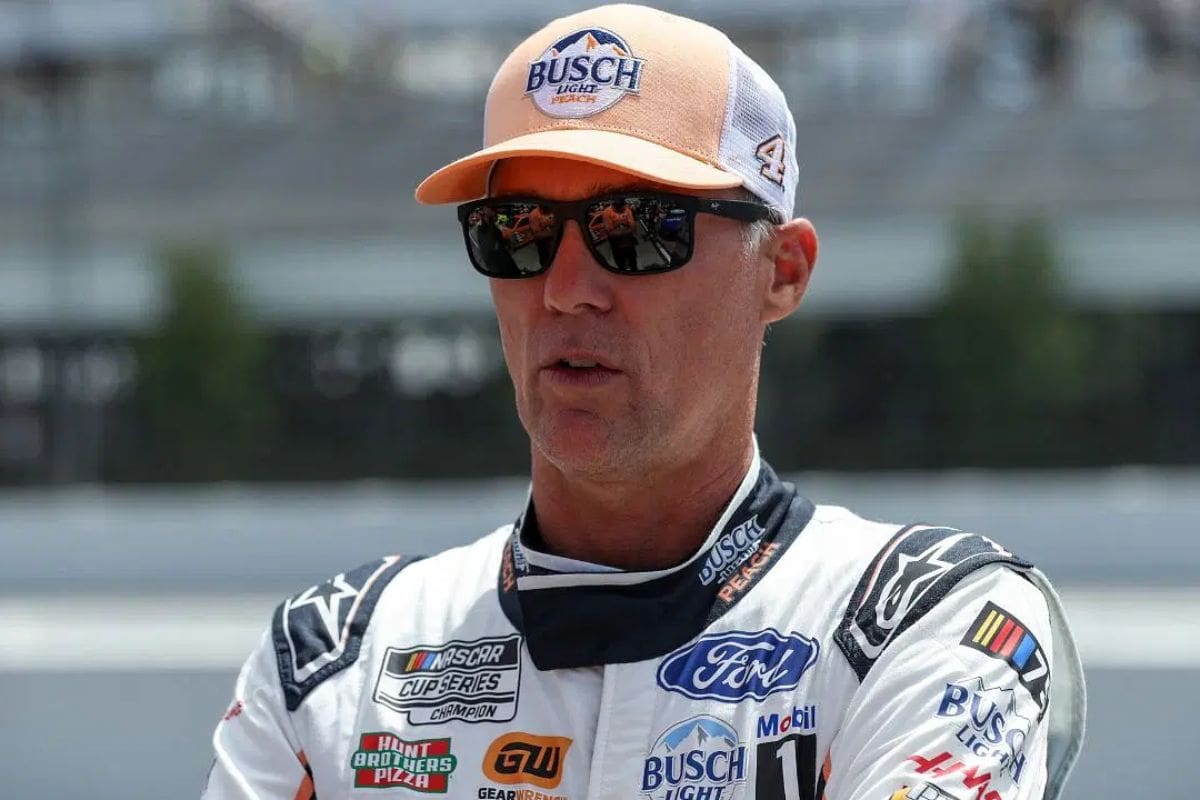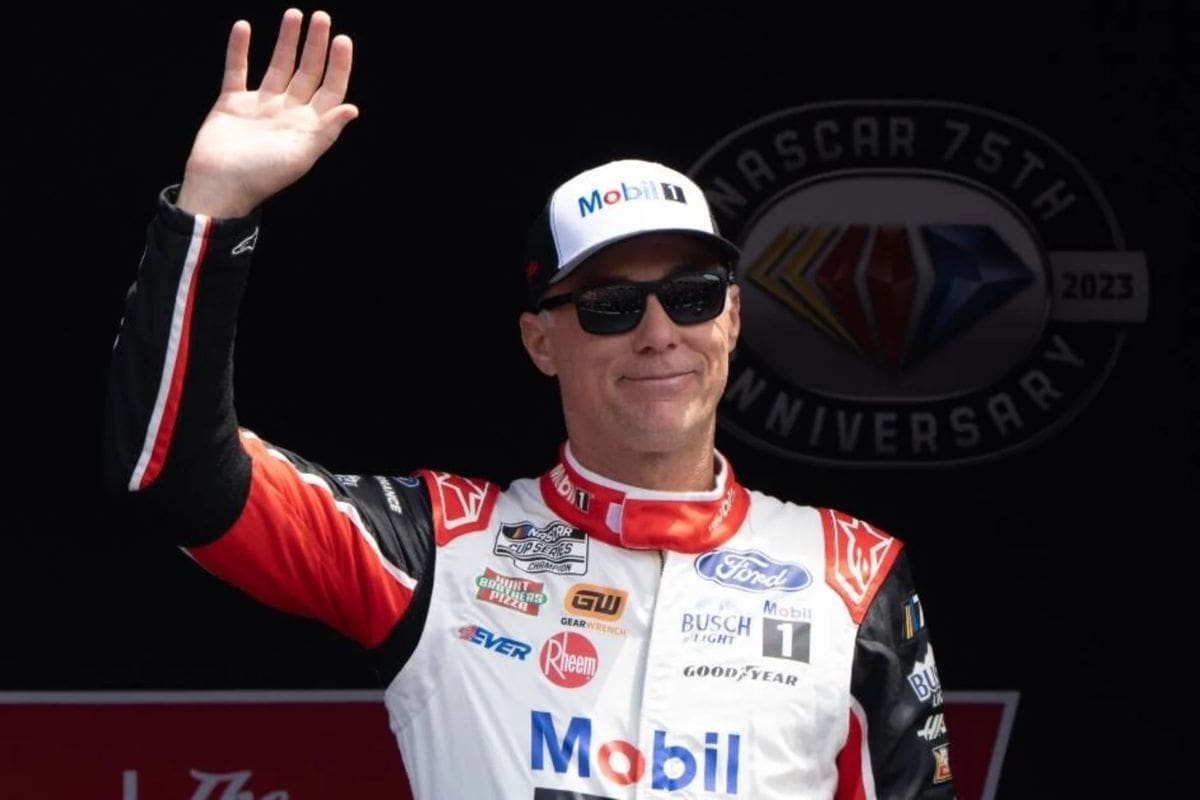Kevin Harvick and Toyota Controversy: Kevin Harvick‘s outspoken criticism of Toyota engines following a series of failures has ignited an important conversation about the reliability of these powertrains as the NASCAR Cup Series edges closer to the playoffs. Harvick’s pointed remarks, triggered by incidents such as Ty Gibbs‘ engine failure at Pocono, suggest that deeper issues within Toyota’s engineering and quality control may be at play. This examination not only places substantial pressure on Toyota teams but also raises broader questions about how these setbacks might influence the competitive landscape of the championship race.
Key Highlights
- Kevin Harvick criticizes recurring engine failures in Toyota cars, suggesting deeper engineering or quality control issues.
- Harvick calls for a rigorous review of Toyota’s engine design and testing protocols to ensure reliability.
- Ty Gibbs’ engine failure at Pocono highlights the impact of heat and stress on Toyota engines.
- Harvick’s concerns raise questions about Toyota’s engineering robustness and reliability in NASCAR.
- Toyota’s engine reliability issues pose a significant threat to their competitiveness and playoff aspirations.
Kevin Harvick Raises Concerns Over Toyota’s Engine Failures
In the midst of recurring engine failures, Kevin Harvick has openly criticized the reliability of Toyota’s engines in the NASCAR Cup Series. Harvick’s remarks show a growing concern among the drivers and teams. His critique emphasizes a broader issue that has significant implications not only for Toyota but for NASCAR itself.
Harvick, a seasoned veteran and respected voice in the sport, pointed to a pattern of mechanical failures that have ruined Toyota this season. Notable incidents include Denny Hamlin’s engine troubles at Sonoma and Christopher Bell’s misfortune at the World Wide Technology Raceway. These recurring issues are symptomatic of deeper engineering or quality control problems that could threaten Toyota’s standing in the series.
“I am hitting the panic button on this one, and that is the Toyota engines because we’ve seen the 11 blow up, the 20 blow up, and the 54 blow up quite a few times. We’ve seen a number of engine issues with the Toyotas. It seems sporadic.” – (Harvick)
Harvick’s analysis is particularly striking given his extensive experience and intimate understanding of the mechanical demands of NASCAR racing. His comments suggest that these failures are not isolated incidents but rather indicative of systemic flaws within Toyota’s engine program. Such a critique should prompt Toyota to undertake a rigorous review of their engine design, testing protocols, and quality assurance processes to mitigate these failures moving forward.
Engine reliability is crucial to securing consistent performance and accumulating points over the season. Persistent failures could erode the confidence of drivers, impact team strategies, and ultimately affect Toyota’s competitiveness and reputation in the NASCAR Cup Series.
Ty Gibbs’ Engine Failure at Pocono
Ty Gibbs’ promising start from pole position at Pocono was abruptly derailed by a mid-race engine failure, highlighting ongoing concerns about Toyota’s mechanical reliability. Gibbs, a budding talent in the NASCAR Cup Series, had shown considerable skill early in the race, but his efforts were hindered on lap 132 when his car began emitting smoke and fluid from its tailpipes.
This catastrophic mechanical failure forced Gibbs to slow down on the Long Pond Straightaway, ending his race prematurely and emphasizing yet another instance of Toyota’s engine issues. The intense demands placed on the engine during high-speed racing can worsen any underlying weaknesses, leading to catastrophic failures under stress.
The integrity of engine components is crucial. Any defects or subpar materials can result in breakdowns, particularly in the demanding conditions of a NASCAR race. Consistent and precise maintenance, along with timely upgrades, are vital to guarantee that engines perform at their peak. Any lapses can leave even the most promising drivers sidelined.
Kevin Harvick’s Concerns on Toyota Engines
Kevin Harvick recently voiced his apprehensions regarding Toyota’s engine reliability during his Happy Hours podcast, showing the recurring issues that have ruined their performance in intense conditions. Harvick’s remarks were unambiguous, highlighting multiple instances where Toyota engines have faltered under high RPM shifting conditions.
“They have been in high RPM shifting racetracks where it seems like they’ve shown up way loud. I would be panicked, but NBC did a great job of getting those shots of the engine expiring with the water and the oil coming out of the exhaust pipes. Holy cow.” – (Harvick)
Harvick’s concerns are insightful and vital, particularly given his extensive experience and stature within the sport. He pointed to specific incidents, meticulously documented by NBC’s coverage, where the visual evidence of engine failures was incontrovertible. These failures, he noted, often occur at critical periods, leading to catastrophic setbacks that reduce the hard work and tactical planning invested by teams and drivers.
What makes Harvick’s commentary particularly compelling is his analytical dissection of the problem. He didn’t merely highlight the failures but contextualized them within the intense environments in which they occurred. According to Harvick, these are not random malfunctions but are tied to the rigorous demands of high RPM shifting, which seems to expose a vulnerability in Toyota’s engine design or durability.
Concerns About Timing as Playoffs Approach
The impending threat of engine failures increases over Toyota’s playoff prospects, magnifying the pressures faced by their teams as the championship race escalates. Kevin Harvick’s pointed critique emphasizes the delicate position Toyota finds itself in with the playoffs imminent. With six out of eight Toyota drivers currently in playoff competition, the reliability of their engines is vital.
“The thing I go back to is they have speed. And you can tell that he knows he has speed with his interviews. Ty knows that they have speed, he’s not worried about that. But I am worried about their engines.” – (Harvick)
Tyler Reddick, leading the Toyota group in the third spot, embodies the potential and risks that Toyota faces. As the playoffs draw near, the timing of these mechanical issues could not be more significant.
“And I am worried if that sporadic blow-up comes at the wrong time in the playoffs. Been there, done that and all of a sudden you’re in a bad position.” – (Harvick)
Confidence is essential for any driver aiming for a championship. Uncertainty about engine reliability can reduce a driver’s mental edge, leading to cautious driving and missed opportunities.
Teams must devise strategies that reduce the risk of engine failures, potentially sacrificing performance for reliability. This balancing act can compromise their competitive edge. A well-timed engine failure during a playoff race can shatter a driver’s championship dreams, nullifying an entire season’s worth of effort and investment.
Toyota’s engineering teams are certainly working tirelessly to address these issues, but the margin for error is narrow. Each race leading up to the playoffs serves as a crucible where the durability of Toyota’s engines will be tested under the most intense conditions.
Overall Impact and NASCAR Community Reaction
As concerns about Toyota’s engine reliability intensify, the broader NASCAR community is abuzz with speculation and anxiety over the potential implications for the championship race. Kevin Harvick’s public criticism has amplified these worries, sparking a fervent dialogue among drivers, teams, and fans. The primary focus is on how Toyota’s mechanical issues could disrupt the competitive balance as the season approaches its climactic playoff phase.
The implications for the Toyota teams are multi-faceted. On one hand, the mechanical setbacks risk eroding the confidence of the drivers and their crews, potentially affecting performance on the track. On the other hand, rival teams see an opportunity to capitalize on Toyota’s vulnerabilities. Teams running Ford or Chevrolet engines may gain a psychological edge, sensing an opening to exploit in their quest for the championship.

News in Brief: Kevin Harvick and Toyota Controversy
Kevin Harvick’s critique of Toyota’s NASCAR engines brings to light critical issues in reliability and performance that could greatly impact the competitiveness of Toyota teams as the playoffs approach. The urgency for a thorough review of engine design and testing protocols is emphasized by repeated failures, such as Ty Gibbs’ incident at Pocono.
Addressing these engineering challenges will be crucial for Toyota’s success, influencing not only team outcomes but also broader perceptions within the NASCAR community.
ALSO READ: Kevin Harvick Urges Denny Hamlin to ‘Stop the Bleeding’ to Avoid Kyle Busch’s Fate



